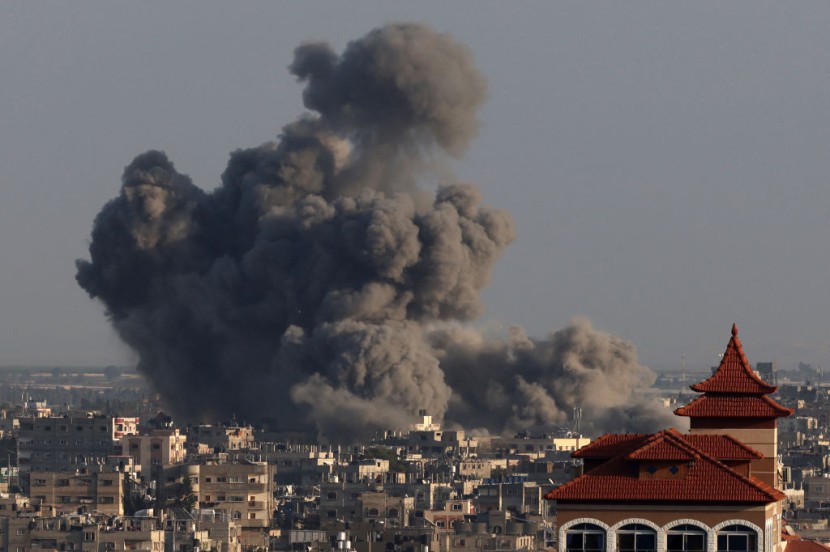Israel meets a growing risk of damaging its peace with neighboring Egypt as Israeli forces continue to push the offensive against Hamas further south in the Gaza Strip. Both countries are currently in dispute over a strip of land between Egypt and Gaza.

In an article published by The Associated Press, Israeli leaders say that to complete their destruction of Hamas, they must eventually widen their offensive to Gaza's southernmost town, Rafah, and take control of the Philadelphi Corridor, a tiny buffer zone on the border with Egypt that remains demilitarized under the two countries' 1979 peace accord.
In a news conference last week, Israeli Prime Minister Benjamin Netanyahu said Hamas continues to smuggle weapons under the border - a claim Egypt vehemently denies - and that the war cannot end "until we close this breach," referring to the corridor.
Egypt responded with a sharp warning that deploying Israeli troops in the zone, known in Egypt as the Salaheddin Corridor, would violate the peace deal.
"Any Israeli move in this direction will lead to a serious threat to Egyptian-Israeli relations," Diaa Rashwan, head of Egypt's State Information Service, said Monday.
Egypt is apprehensive an Israeli attack on Rafah will push a massive wave of Palestinians fleeing across the border into its Sinai Peninsula. According to the AP, more than 1 million Palestinians -- nearly half of Gaza's population of 2.3 million -- are crowded into Rafah and its surroundings on the border, most driven there after fleeing Israeli bombardment and relentless assault everywhere else in Gaza.
When Israeli troops move in on Rafah, they will have nowhere to flee. However, Palestinians have broken through before. In 2008, early on in the blockade imposed on Gaza by Israel and Egypt after the Hamas takeover, Hamas blew open the border wall, allowing thousands to rush into Egypt.
The disagreement with Egypt puts Israel in a bit of a sticky situation. Should forces stop their offensive without taking Rafah, they will have failed in their top priority, erasing Hamas. But, if Israeli forces push further to the border, it compromises its peace deal with Egypt. One that has proved to be a cornerstone of stability in the Middle East for decades. Israel also risks upsetting its closest ally, the United States.
Lately, Israel and the U.S. seem to have reached an impasse, divided over Gaza's post-war future. The U.S. is opposing any attempt by Israel to annihilate Gaza's territory. Israeli forces are working to create an informal buffer zone that measures about half a mile wide inside Gaza along the border with Israel to prevent militants from attacking nearby communities.
Israel pledged to eradicate the militants from the entire Gaza Strip and has done so through systematic destruction that has resulted in an overwhelming devastation of civilian lives. Israel started in the north of Gaza, explaining forces were eliminating Hamas tunnels and infrastructure while battling militants. Their strategy is working its way down the territory, doing the same in central Gaza and the southern city of Khan Younis.
The publication went on to report that Netanyahu has said Israel intends to keep open-ended security control over Gaza to ensure Hamas cannot repeat its Oct. 7 attacks that triggered Israel's assault.
He has been vague on what form that would take but said protecting control over the Philadelphi Corridor is crucial.
"There are a few options on how we can close it. We are checking all of them, and we haven't made a decision, except for one thing: It must be closed," stated Netanyahu.
Amid Egypt's warning to Israel and the U.S. that any military operations in the zone "could tear apart our peace," said a second Egyptian official. "We will not tolerate such a move." The official spoke on the condition of anonymity because he was not authorized to talk to the press.
© 2025 HNGN, All rights reserved. Do not reproduce without permission.









